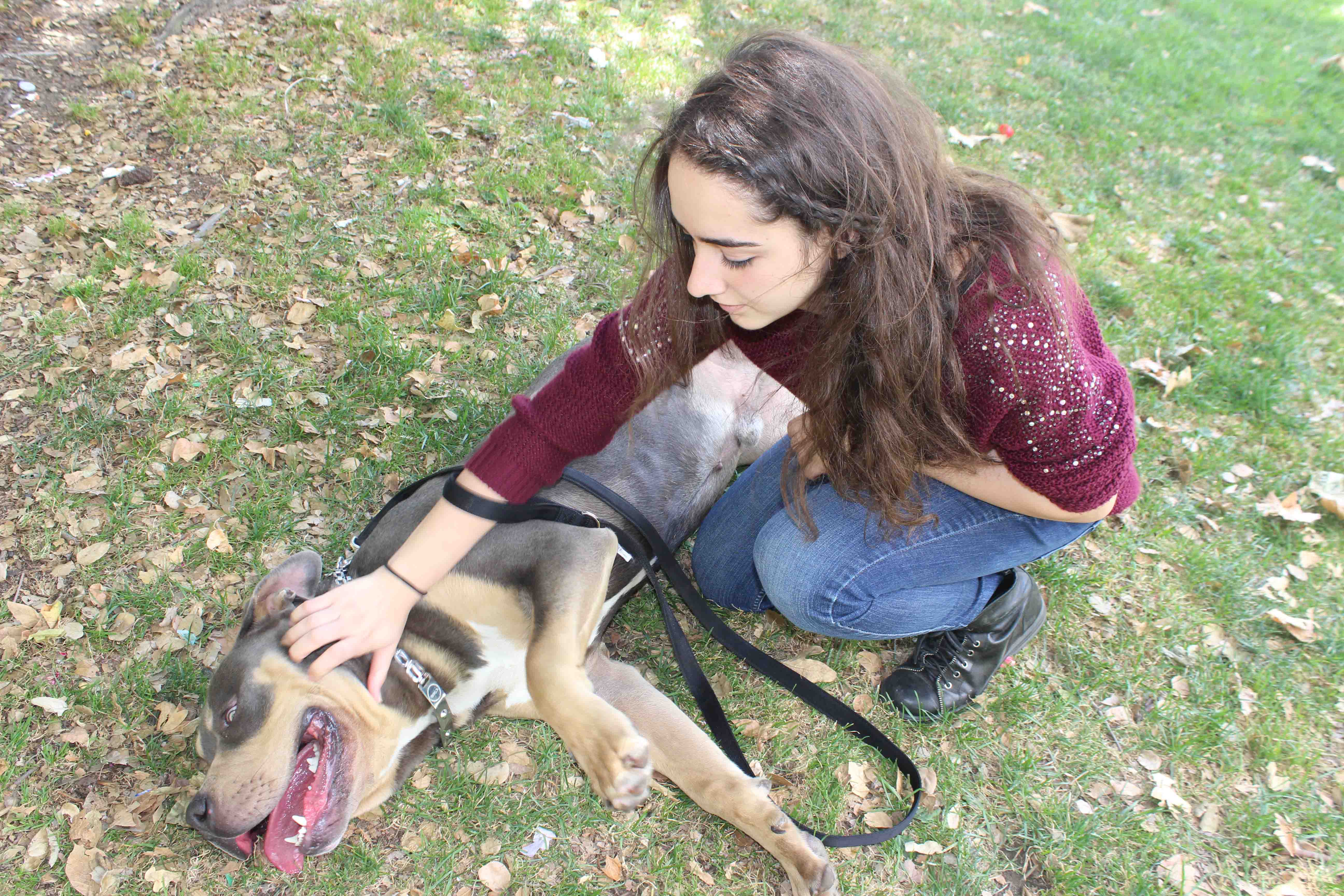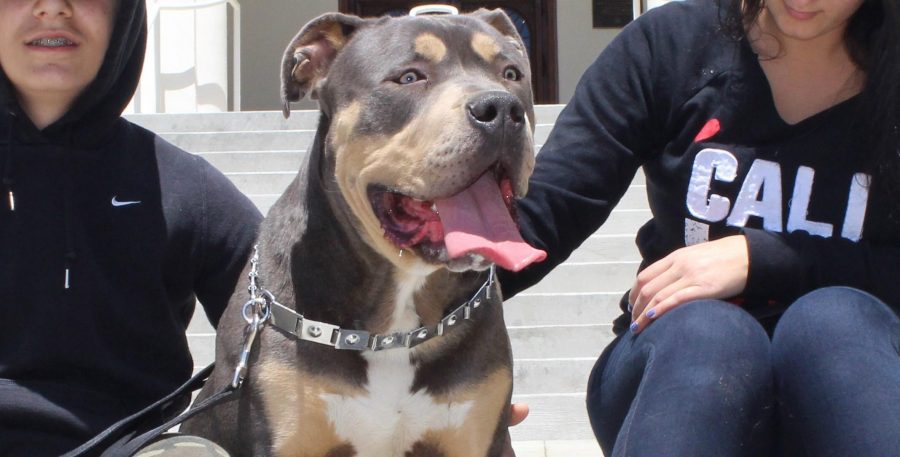Pitbull owners address stereotypes
April 15, 2015
Seventeen different cities and counties in the state of California have laws regulating pit bulls, whether it be a complete restriction of existence in La Verne, “mandatory sterilization” in San Francisco, or “confinement requirement” in Gonzales. Pit bull specific legislation began in over 700 cities nationwide three decades ago, according to a news article on USA Today. Pit bulls have the worst reputation of America’s housepets, bar none.
However, Glendale isn’t under pit bull specific legislation and its citizens have free reign when it comes to their pet of choice. “My pit bull’s name is Don and my family got him when he was four months old because my brother’s friend was giving his away. Now he’s a year and seven months old, and at first training him was kind of rocky but now everything’s fine,” said senior Nune Garipian.
“The worst thing that’s happened with Don is probably when people tell my family how dangerous pit bulls are. When we walk him and see someone approaching him, we always stop him on the side and distract him so he won’t get caught up in trying to play with the person. To them it seems like he’s about to attack but in reality he’s never been hostile or bitten anyone!”

Garipians’ dog, Don, is a year and seven months old.
Alongside students, English teacher Conrad Pruitt is also an owner of the breed. Pruitt has seven years of experience with his own pitbull, Achilles. “At first, Achilles was energetic and affectionate but very undisciplined. So training him was difficult,” Pruitt said. “He had to attend beginning and intermediate classes. Achilles keeps the house safe and he’s overly social, he’s very eager to please. There’s nothing wrong with the breed itself, but ownership is what’s important. An owner should be dominant but compassionate, and not play up the irresponsible stereotypes.”
It’s easy to stereotype a breed and slap on laws completely banning them through city and state governments. Not to say that some of these claims are unjustified, because there are definitely strong cases of pit bulls misbehaving.
But does completely banning pit bulls solve their problem of violence? Laws and regulations that stress the owners’ responsibilities have been proven to be more effective compare to those that completely ban them. In fact, the latter have been found to be “ineffective in reducing dog bites and led to millions of dogs being euthanized,” according to a news article in USA Today.
Horrific stories of dog fighting can be found in the news every so often, like the Michael Vick scandal of 2007 that gained significant media traction. Gruesome details of animal abuse (mainly pit bulls) in an illegal interstate dog-fighting ring, the “Bad Newz Kennels,” were released. Vick had not only participated the blood sport, but had been involved in the torture of dogs who hadn’t performed up to par.
Maybe the fact that pit bulls were originally bred as fighting dogs is what accounts for the serious abuse that they undergo. In the middle of the East Coast’s insufferable blizzard this past winter, the New York Police Department (NYPD) found a six-month-old pit bull named Hennessy beaten, starved, and up to its neck in snow in Bronx, according to nypost.com.
The NYPD found visible signs of abuse on the puppy after being beaten with a shovel and afterwards took her to a Manhattan ASPCA. Charges against the owner included “Aggravated Cruelty to Animals (1) [and] Torture/ Injure/ Not Feed Animal” according to the full statement from the NYPD. Those charges don’t sound light, and the FBI’s Uniform Crime Report now includes animal cruelty and every state in America now has felony penalties for malicious animal cruelty, according to humanesociety.org.

Garipian plays with Don in the park after a tiring walk.
Although dogs’ ancestry can play a large role in their everyday behavior, it doesn’t completely predetermine it. The American Society for the Prevention of Cruelty to Animals (ASPCA) states that the pitbull of today is a descendant of the original English bull-baiting dog, which was bred to bite and hold bulls, bears and other large animals around the face and head. The pit bull has unarguably dangerous roots, but do their aggressive ancestors account for all of their behavior in the present?
No, not at all. That is the stereotypical perception of the breed that has caused so much damage to their reputation. It’s a popular opinion that pit bulls are lost causes, dangerous from the beginning. They’re so often pinned as inherently dangerous, that people often forget that the way dogs are raised is the by far a more relevant factor to their behavior compared to what breed they are.
The stereotype of aggressive dogs is a result of improper training and the breed’s reputation as a whole suffers. “Shelters are overcrowded with pit bulls and are quick to be euthanized because no one wants to adopt them. The ignorance is disgusting and it’s wrong; these dogs are getting punished for what they are and not what they’ve done,” said Robin Alparaz, a Los Angeles based pitbull trainer.
“I know that the Pasadena Humane Society has a temperament test for them to see if they’re good with other dogs, families or children in hopes that the test will designate their personality,” said Alice Russell of the Glendale Humane Society, which doesn’t actually keep pit bulls due to certain insurance complications. “A lot of fear is generated into the public from the image that is perpetuated by the media.”
